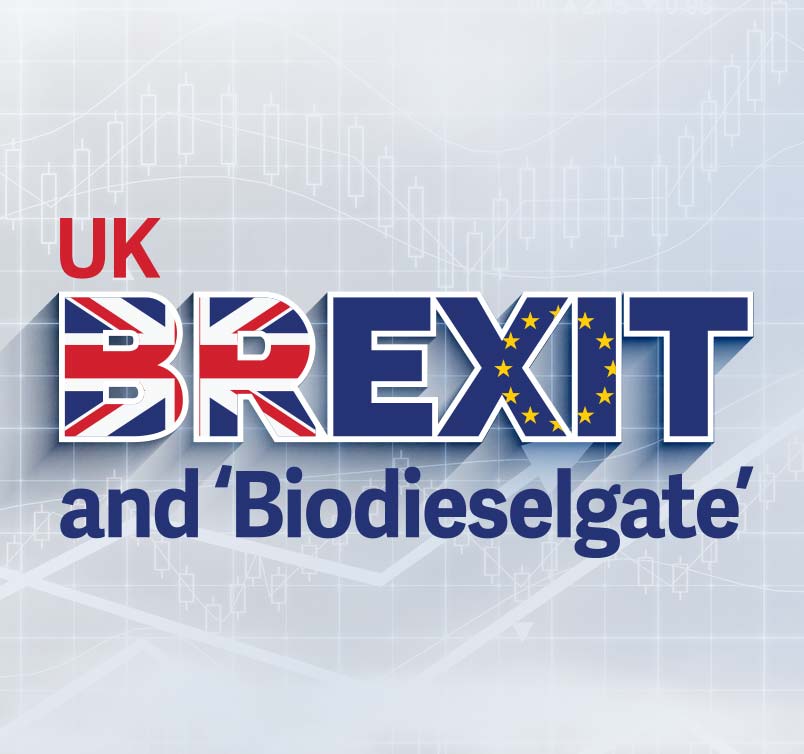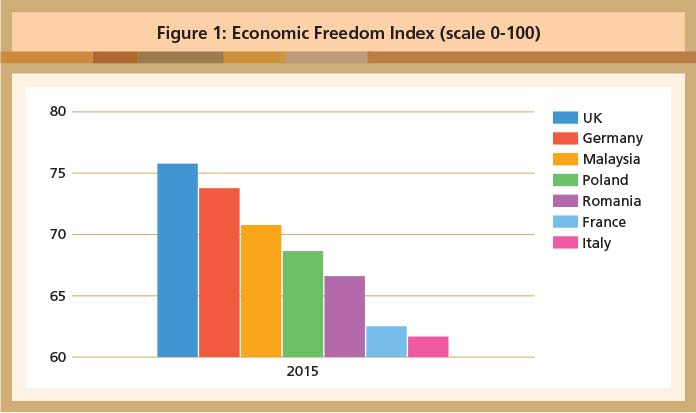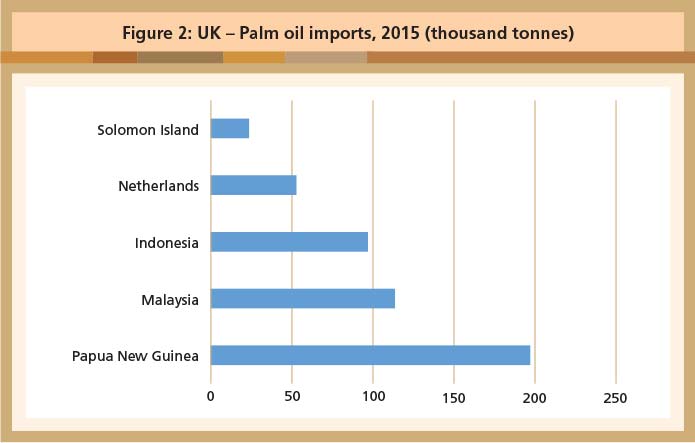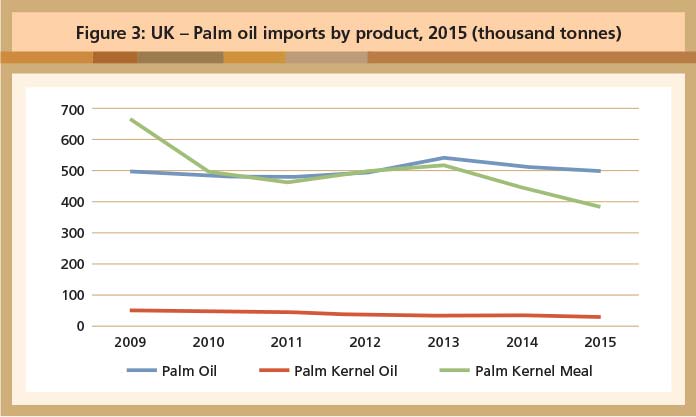



Uncertain market for palm oil
February, 2017 in Issue 1 - 2017, Markets
The UK has one of the most deregulated and privatised economies in the world, based on the principles of liberalisation, the free market, low taxation and reduced regulation. This heritage is displayed in the Economic Freedom Index (Figure 1). The index (with 100 being the maximum) measures 10 components under four broad categories: rule of law; limited government; regulatory efficiency; and open markets.

Source: The Heritage Foundation
With a GDP of about US$85 trillion in 2015, the UK has the world’s sixth-largest economy and Europe’s second-largest GDP after Germany. It is in eighth place measured by purchasing power parity. Economic growth was recorded at 2.2% in 2015. The agricultural sector is small by European standards, at 0.9% of GDP.
UK palm oil imports amounted to 499,400 tonnes in 2015, with a total of 81.8% supplied by Papua New Guinea (PNG), Malaysia and Indonesia.

Source: Oil World 2015 & 2016
The unusual scenario of PNG being the largest provider of palm oil requires an explanation. The previously UK-owned New Britain Palm Oil Ltd – a leader in the European palm oil industry – has since March 2015 become a wholly-owned subsidiary of Malaysia’s Sime Darby Plantation Bhd. New Britain sources palm oil from its plantations in PNG and the Solomon Islands. It also owns two refineries, one in PNG and one in Liverpool (England).

Source: Oil World 2015 & 2016
Pages : 1 2